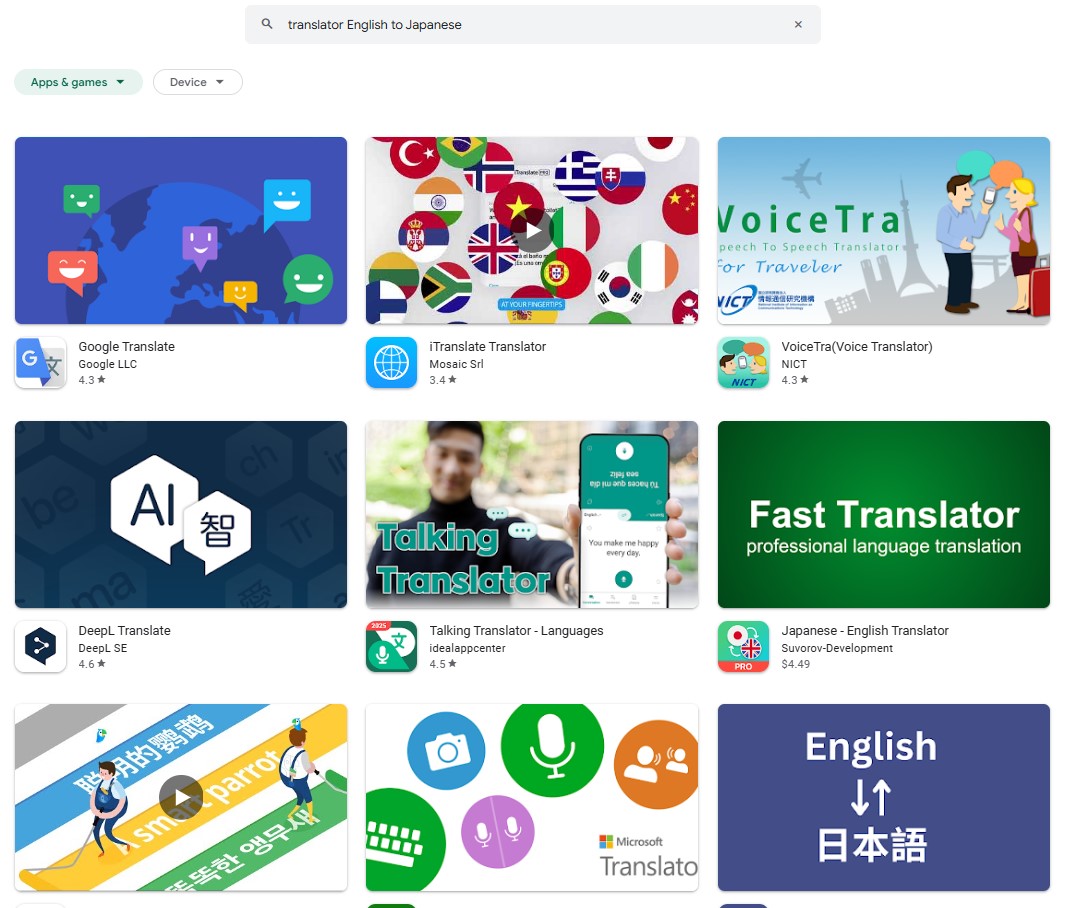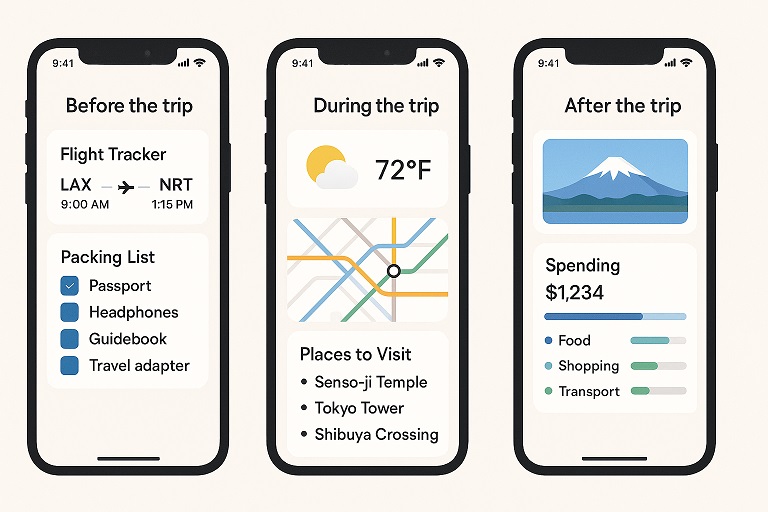The Challenge of Today's App World

The endless cycle of app hunting and learning new interfaces
Every time you need something new, you're pushed into the same cycle:
- 🔍 Search the app store.
- 📊 Compare dozens of options with nearly identical features.
- 📖 Read descriptions, ratings, and reviews.
- 📱 Download and install one.
- 🎯 Learn a new interface — even if it works just like others.
- 👤 Sometimes: register, verify email, or sign in.
All of this for just one tiny piece of your journey.
Take translator apps: the store is full of them, all doing roughly the same job. But as a user, you still need to guess which one is "best," install it, and learn yet another interface — even though what you really want is just translation within your current flow.
It's a never-ending battle of app hunting and app learning.
What Makes App Flows Different
📱 Traditional Apps
Static: once you install them, they look and behave the same, regardless of your stage in a journey.
🌊 App Flows
Dynamic and adaptive — living experiences that grow and shrink with your journey.
App Flows, by contrast, are dynamic and adaptive. They:
- Highlight what matters most right now.
- Fade out or remove tiles that are no longer relevant.
- Rearrange themselves automatically as your context shifts.
They are not "one app per problem" — they are living experiences that grow and shrink with your journey.
The Tokyo Trip Example

A Living Companion that evolves as your context changes
Let's imagine you're planning a trip to Tokyo.
🛫 Before the trip
- The App Flow emphasizes your flight tracker and hotel reservation details.
- Maps, translation, and restaurant suggestions exist but stay in the background.
🗾 During the trip
- The App Flow reshapes itself automatically.
- Now, the translation tile, navigation maps, and restaurant finder rise to the top.
- The flight tracker shrinks into a small widget since it's less critical.
📸 After the trip
- Your photo gallery and spending tracker take the spotlight.
- The flight tracker disappears completely.
- You're guided into reflection, sharing, and memory instead of logistics.
🗂️ Beyond the trip: Disposable & Archivable Flows
Here's where App Flows truly differ from traditional apps:
- 🗑️ Disposable by default: Once your Tokyo trip is complete, the entire App Flow can gracefully disappear. No cluttered home screen, no forgotten apps taking up storage.
- 📦 Archivable when needed: If you want to keep the flow for reference or reuse, it gets archived with all your preferences, favorite restaurants, and learned patterns intact.
- 🔄 Instantly retrievable: Planning another trip to Japan two years later? Your archived "Tokyo Trip" flow can be restored instantly, with all your previous preferences and learnings ready to go.
The Revolutionary Difference
Instead of permanent apps that accumulate on your device forever, you get temporary experiences that exist only as long as you need them — and can be recalled when relevant again.
This isn't just a self-updating app.
It's a Living Companion — an app that evolves as your context (location, time, role, and goals).
Defining App Flows and Mosaic
To be precise:
🌊 App Flows
The representation of the user's goal or journey. They describe what you want to achieve (plan a trip, complete a course, manage a health check-up) and evolve as your context changes.
🎯 Mosaic
The composition engine that interprets App Flows. It brings together the right "tiles" — small modular capabilities like translation, maps, reminders, or payments — and assembles them into a single adaptive experience.
In short:
App Flows capture your intent.
Mosaic builds the experience around it.
Why Adaptive Journeys Matter
With Mosaic-driven App Flows:
Less clutter
Only what matters now is visible.
Less friction
No more searching, installing, or relearning interfaces.
More focus
Your app evolves with you, stage by stage.
More trust
You know the right tool will surface when you need it.
More human
Apps finally mirror the way we actually live — in flows, not silos.
Homework for You
👉 Homework 1:
Think of one journey in your life (a trip, a health check-up, a project, or a course). Write down the stages of that journey. What apps did you use at each stage?
👉 Homework 2:
On your phone, scroll through your installed apps. Which ones did you download for a single purpose — and never use again?
Imagine if those weren't permanent apps on your phone, but temporary tiles that appeared in your App Flow when needed, and gracefully disappeared afterward.
Next Up: Part 3 — Under the Hood
We'll look behind the scenes at how App Flows are built: the Context Engine, the Registry of Tiles, the Composer, and how Mosaic keeps them secure and trustworthy.